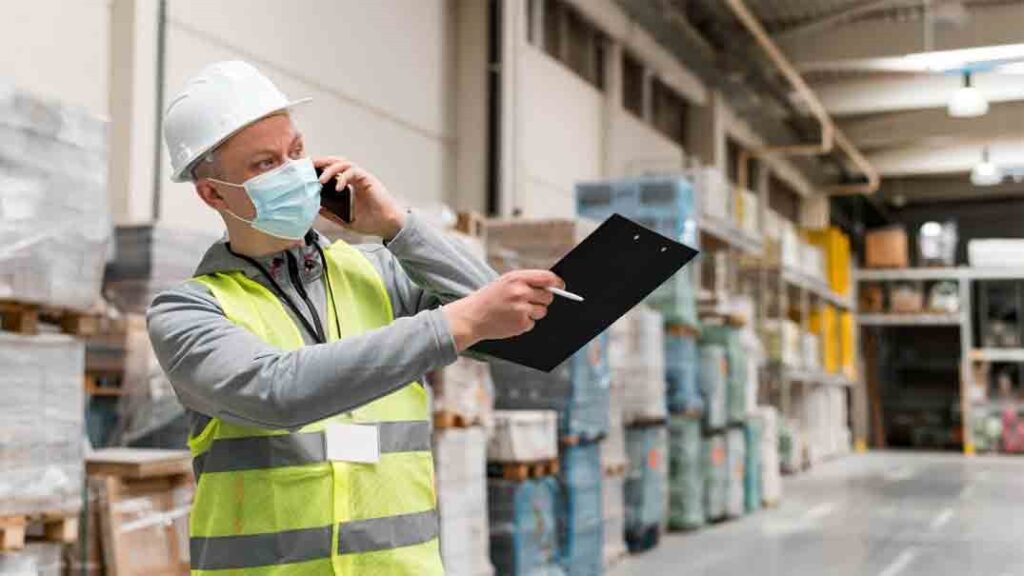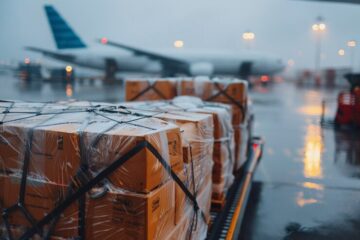
Transporting chemicals involves navigating a complex web of regulations designed to ensure safety and environmental protection. Compliance with these regulations is crucial to avoid legal repercussions and ensure the safe handling of hazardous materials.
Overview of Regulatory Compliance in India
In India, the transportation of chemicals is governed by several regulations aimed at ensuring safety and environmental protection. Key regulations include:
The Hazardous Waste Management Rules, 2016
These rules govern the handling, transport, and disposal of hazardous waste. They mandate proper labeling, packaging, and documentation to prevent environmental contamination and health risks.
The Chemicals (Management and Safety) Rules, 2019
These rules provide guidelines for the safe management of chemicals throughout their lifecycle, including their transport. They require compliance with specific safety protocols and proper risk assessment.
The Indian Explosives Act, 1884
For chemicals classified as explosives, this Act stipulates stringent requirements for storage and transport to prevent accidents and ensure safety.
The Factories Act, 1948
This Act includes provisions related to the safe handling and transport of hazardous substances within industrial settings.
International Regulatory Standards
Internationally, several key regulations and agreements govern the transport of chemicals. These include:
The Globally Harmonized System of Classification and Labelling of Chemicals (GHS)
GHS provides a consistent global framework for classifying and labeling chemicals. It aims to ensure that information about chemical hazards is communicated effectively through standardized labels and safety data sheets (SDS).
The International Maritime Dangerous Goods (IMDG) Code
IMDG Code governs the transport of dangerous goods by sea. It sets out requirements for packaging, labeling, and documentation to ensure safety during maritime transport.
The International Air Transport Association (IATA) Dangerous Goods Regulations
IATA regulations apply to the air transport of dangerous goods. They include detailed guidelines on packaging, labeling, and documentation to ensure compliance with international air transport standards.
The European Agreement Concerning the International Carriage of Dangerous Goods by Road (ADR)
ADR provides a framework for the safe transport of dangerous goods by road across Europe. It covers packaging, labeling, and vehicle requirements to enhance safety and compliance.
Key Aspects of Regulatory Compliance
1. Classification and Labeling
India: Under the Chemicals (Management and Safety) Rules, chemicals must be classified according to their hazards and labeled accordingly. Proper labeling includes hazard symbols, safety instructions, and emergency contact information.
International: The GHS standardizes labeling globally, ensuring that hazard information is consistent and easily understood. Compliance with GHS helps prevent miscommunication and enhances safety across borders.
2. Packaging Requirements
India: Packaging of hazardous chemicals must adhere to specific standards to prevent leaks and spills. The packaging must be robust, clearly labeled, and compatible with the chemical’s properties.
International: IMDG and IATA regulations set out detailed packaging requirements, including specifications for container types, closure methods, and inner packaging. Adherence to these standards ensures safe transport and minimizes the risk of accidents.
3. Documentation
India: Transporters must provide accurate documentation, including Material Safety Data Sheets (MSDS), transport permits, and hazard declarations. Documentation helps ensure that all safety measures are in place and that authorities are informed of potential risks.
International: Documentation requirements under GHS, IMDG, and IATA include the provision of SDS, transport documents, and compliance certificates. Proper documentation facilitates smooth customs clearance and ensures regulatory compliance.
4. Training and Certification
India: Personnel involved in the handling and transport of chemicals must undergo training to understand regulatory requirements and safety procedures. Certification from recognized bodies can enhance credibility and ensure compliance.
International: IATA, IMDG, and other international standards require that staff handling dangerous goods receive appropriate training. Certification programs are available to ensure that personnel are well-versed in international regulations and safety practices.
5. Emergency Response Planning
India: Regulations require that companies have emergency response plans in place to handle spills, leaks, and accidents. These plans should include procedures for containment, cleanup, and communication with authorities.
International: International standards also mandate emergency response planning. The GHS and IMDG codes emphasize the need for effective response strategies and communication channels to manage incidents involving hazardous materials.
Best Practices for Ensuring Compliance
Stay Updated: Regulations for chemical transport are subject to change. Regularly review and stay updated on both Indian and international regulations to ensure ongoing compliance.
Implement Comprehensive Training: Provide regular training for employees on regulatory requirements, safety protocols, and emergency response procedures. Training should cover both domestic and international regulations.
Utilize Technology: Leverage technology for managing documentation, tracking shipments, and ensuring compliance with regulatory requirements. Digital platforms can streamline processes and enhance accuracy.
Engage with Experts: Collaborate with compliance experts and consultants who specialize in chemical transport. Their expertise can help navigate complex regulations and ensure adherence to best practices.
Conduct Regular Audits: Perform regular audits of your chemical transport processes and practices. Audits help identify areas for improvement and ensure that all safety and compliance measures are being followed.
How Abhijeet Logistics Can Help
Abhijeet Logistics is committed to providing expert solutions for chemical transport, ensuring compliance with both Indian and international regulations. Our comprehensive logistics services include customs clearance, insurance solutions, and specialized handling for hazardous materials. Our team is well-versed in the latest regulations and best practices, offering tailored solutions to meet your specific needs. With our robust compliance framework and extensive industry experience, we ensure the safe and efficient transport of your chemicals, adhering to all regulatory requirements.
Abhijeet Logistics offers expert services in chemical shipping, providing comprehensive solutions that meet regulatory requirements and industry best practices. Contact us to learn more about how we can support your chemical transport needs and ensure compliance with all relevant regulations.



